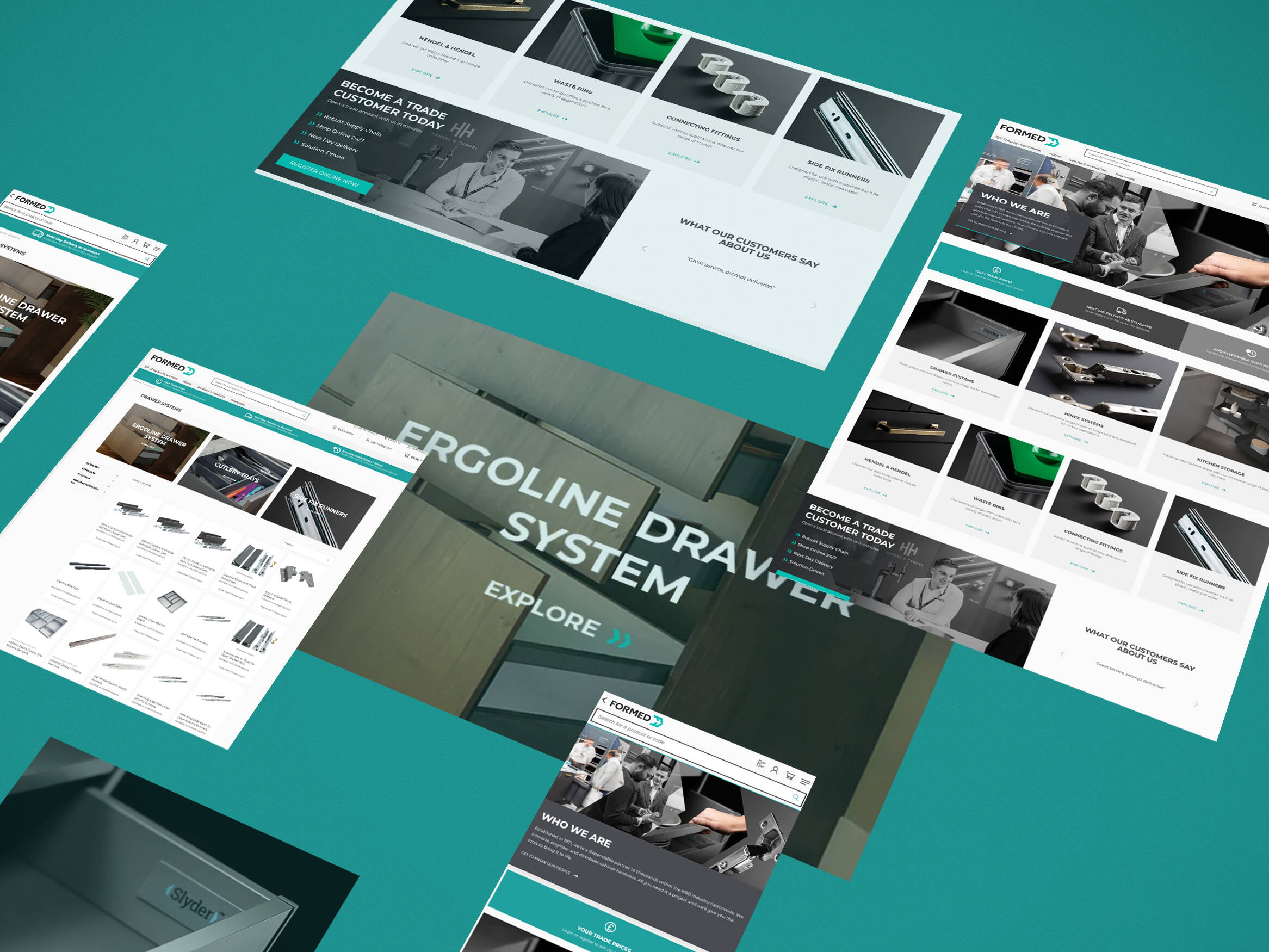Before you can start social proofing your eCommerce website, it’s important to understand what ‘social proofing’ actually is and how you can start social proofing your eCommerce website. Really, it’s just a fancy way of describing the sense of collectively affirmed assurance that shoppers feel when they read about positive online experiences in reviews, through testimonials or via social shares. Social proofing can really make customers feel much more comfortable about buying from an eCommerce store.
Did you know? 63% of consumers are more likely to purchase from a site if it has product ratings and reviews.
Social proofing is an integral part of conversion optimisation. It not only offers customers reliable, unbiased assurances about the services or products they’re engaging with, but it gives eCommerce merchants the ability operate with a sense of transparency, by opening themselves up to both good and bad reviews. All of which is key, if you want to ensure your sales stay up!
Learn From The Best: Social Proofing Your eCommerce Website The Right Way
If you’re thinking about social proofing your eCommerce website, it’s always best to look at some of the other eCommerce sites out there who are leading the way.
Airbnb – Onsite Review System
It’s clear that Airbnb is designing for trust. Apart from the fact they have a whole landing page dedicated to trust, as well as offering hosts a professional photography service and putting customers and hosts at the centre of their social media efforts, they also have an excellent onsite review system.

Without the onsite review system, Airbnb simply wouldn’t work, but it’s something that serves both the hosts as well as potential guests. As you would expect, guests are expected to post reviews about their stay for the benefit of their hosts, so they can build up some positive reviews and increase the number of bookings they receive. Yet under this system, guests also receive a review from their hosts, so they can showcase themselves as honest and trustworthy. This two-way feature is unlike anything we’ve seen when it comes to online hotel feedback.

Customer reviews are an excellent way to start social proofing your eCommerce website. However, for Airbnb, their two-way system goes further than most others. To stop people leaving positive reviews in the hope of one back, all reviews are revealed to hosts and guests simultaneously. Clever!
In short, Airbnb keeps things current, transparent and fair. All reviews having to be made within 14 days so that they’re based on a recent trip. Fundamentally, they give potential guests feedback & information in areas they really care about, such as ‘accuracy’ of the listing (which can be a real worry for customers) as well as the ‘check-in process’.
TopShop – Trending Products
Topshop is amongst a select group of online retailers who are currently documenting their ‘Trending Products’. For this clothing merchant, they’ve placed their ‘Trending’ notifications below products that are considered to be popular amongst online buyers, as well as when a customer clicks on that specific product landing page.


The idea behind the ‘Trending Product’ notification is that it helps give items at TopShop a greater sense of legitimacy for the potential buyer, almost as if they’ve been ‘approved’ by other customers because they’re clearly popular and selling fast.
By showing a customer the popularity of certain items, it’s bound to set in motion a shopping frenzy, one that helps boost overall sales performance.
Oasis – ‘My Way’
In many ways, this goes one step further than Topshop ‘Trending Products’. The Oasis ‘My Way’ addition really shows some of the interesting ways you can start social proofing your eCommerce website the right way. This social media gallery shows the top trending picks, picks that have been selected and showcased by real members of the public. We feel like we can trust what we see because they’re real opinions, featured by real people.

However, this gallery has a two-fold functionality. Not only do you get to see real people in killer Oasis collabs, but the ‘Shop The Gallery’ feature helps customers track down items they’ve seen being worn. This is a great way to social proof your site as well as harnessing the power of social media engagement.

Missguided – ‘Checked This Out’
There are so many ways to start social proofing your eCommerce website online and fast-fashion retail giant Missguided is using visual statistics to achieve theirs. This feature cleverly documents what items and how people have ‘checked-out’ in the last hour, helping to generate a sense of collective buyer approval. This undoubtedly helps to encourage buyer confidence and contributes to more online sales and more conversions.

The informality of the presentation is subtle, but it gets the message across. Users want reassuring data and stats, but they want it in manageable chunks and in bite-size pieces. What Missguided are doing here is showing just how popular a product is, without boring their customers.
Hotels.com – ‘Currently Looking’
This is similar to what Missguided are doing with their checkout statistics, but this might be even more of a masterclass in social proofing persuasion. Hotels.com have implemented pop-ups to help inform customers:
- How many people have been looking at the same hotel
- The last person to book a particular hotel
- How long ago people purchased rooms

This use of social proofing amplifies ‘buyer pressure’, making a potential customer well aware that their room or hotel is more likely to sell out if other users are viewing it.
Amazon – #1 Best Seller
The Amazon ‘Best Sellers Rank’ calculation is based on Amazon.com sales and is updated hourly to reflect recent and historical sales of every item sold on the Marketplace. They can be found on most product pages if you scroll down to the “Product Details”, as examples below. This fab feature from Amazon is another example of how to start social proofing your eCommerce website the right way.

Showing customers the ‘trending’ or ‘#1 Best Seller’ products is useful when they’re browsing for items as it helps them to make informed, ‘secure’ purchases, so they know that they’re safe in the knowledge that other customers have also bought the same items.
eBay – Watching/Sold Stats
eBay has developed a really interesting way to incorporate social proofing into their website. Using statistics in such a way that benefits customers and conversion rates alike. Their confidence messages are dotted around their product pages, for example ”3 sold in the last hour’ or ”4,185 sold”, which gives the customer a feeling of trust and transparency when it comes to checking out.

MyMemory – Google Customer Reviews
There are plenty of third-party review services if you want to start social proofing your eCommerce website this way. Online digital memory retailer MyMemory has utilised third-party source Google Customer Reviews. It works because seller ratings are advertised on your site, showcased via a 1-5 star score rating that appears on search ads and Google Shopping, as well as your Google Customer Reviews badge.

The Google Customer Reviews badge is a visual way to help shoppers easily identify your site with the Google brand. The badge also promotes your seller rating and can be placed on any page that you choose on your site.
If you click on the badge then it will take direct you to a page, as seen in the example below. You will find a breakdown of the star rating and customer reviews from people who have used and purchased from the MyMemory.

Final Thoughts
As we’ve seen, there are so many ways you can start social proofing your eCommerce website, for the benefit of both your customer and your own conversion rates. In today’s eCommerce market, there’s no real way you can function fully as a business without some sort of social proofing efforts. Just think, the difference between someone checking out or abandoning their basket could be one customer review!
For further reading, check out and download our free eCommerce Essentials Guide.
Get in touch
We know commerce, let us help you improve customer experience, increase conversion rates, and make that digital change.
- hello@iweb.co.uk

















